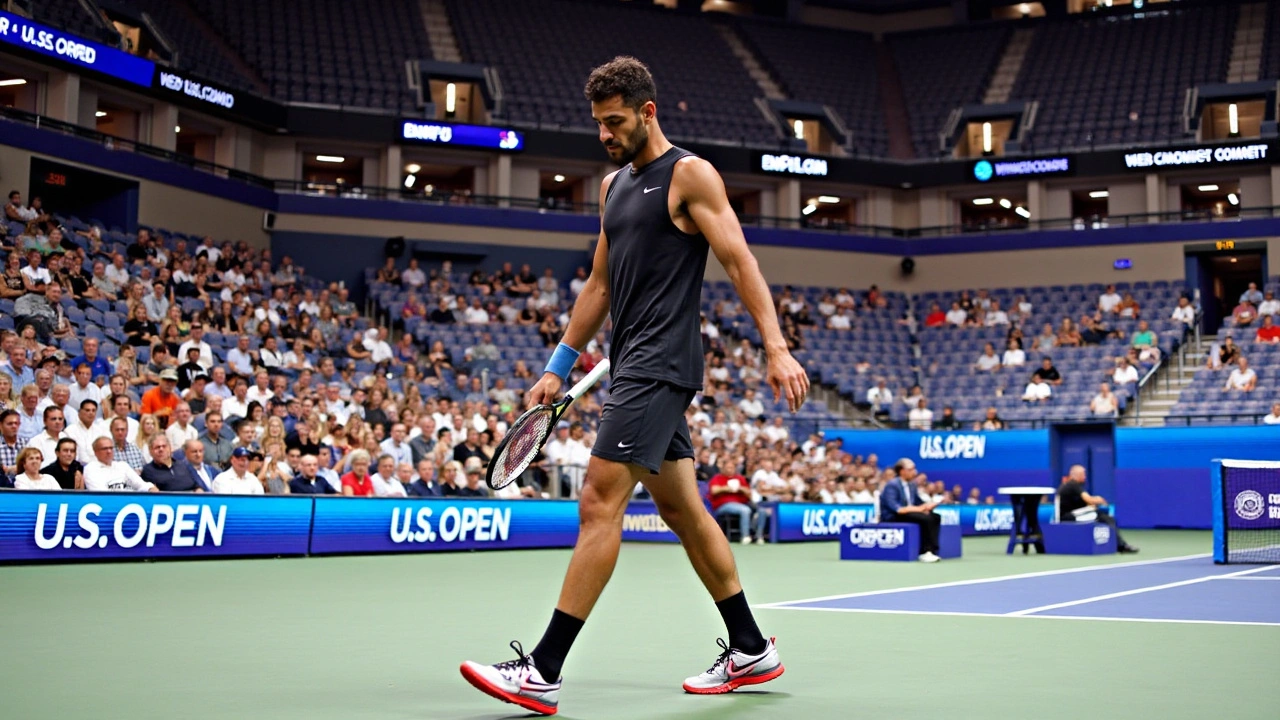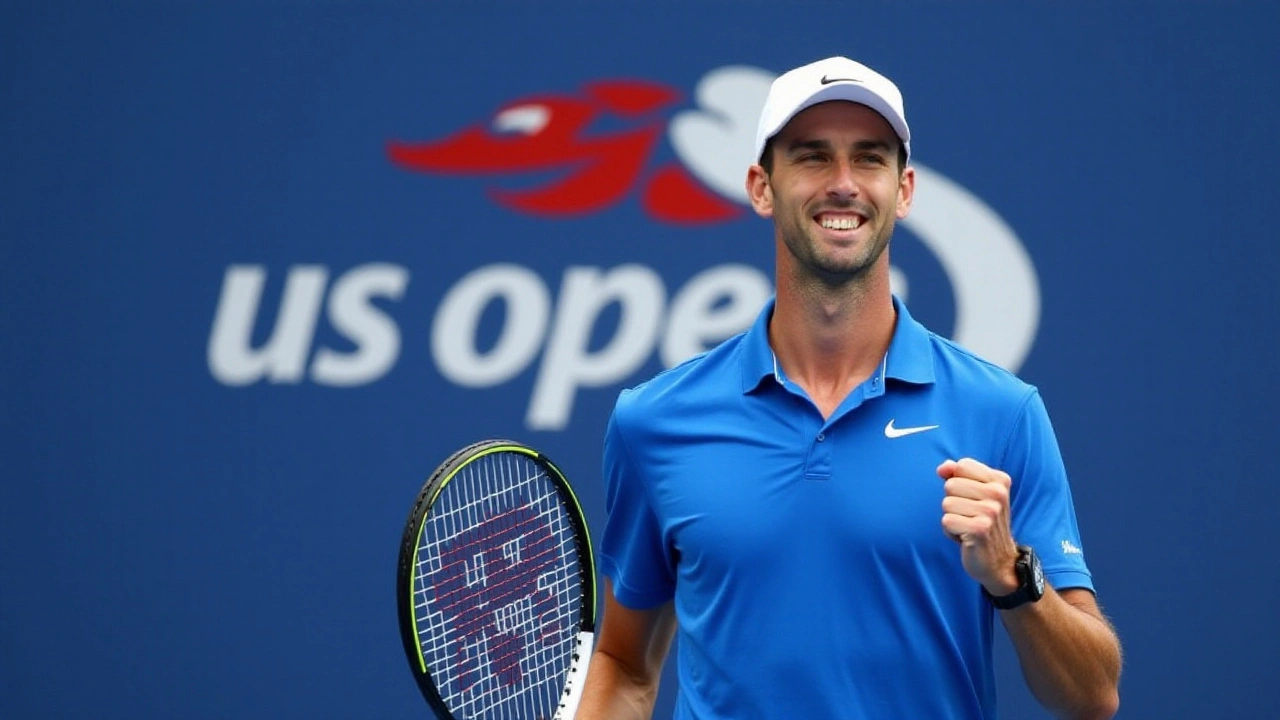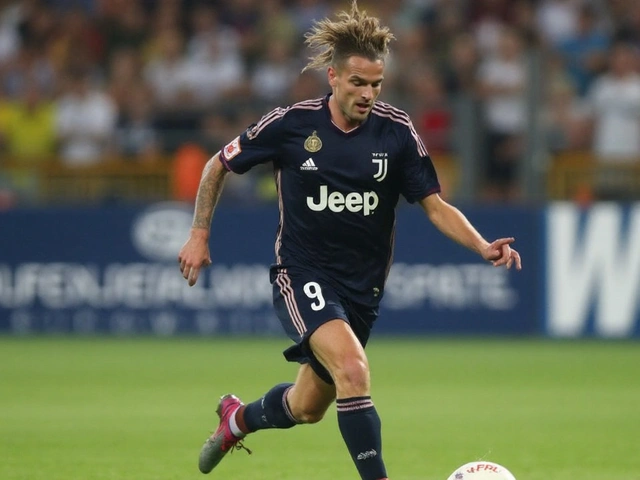Unexpected Triumph at Arthur Ashe Stadium
In a match that sent shockwaves through the world of tennis, Botic van De Zandschulp, a relatively unheralded 28-year-old from the Netherlands, pulled off a stunning victory against Carlos Alcaraz, the world number three. The encounter at the US Open saw Van De Zandschulp clinching the match in straight sets, 6-1, 7-5, 6-4, leaving spectators at Arthur Ashe Stadium in sheer disbelief.
This win stands as one of the most unexpected results in recent Grand Slam history. Alcaraz had been on a phenomenal run, having already secured titles at the French Open and Wimbledon earlier in the year, and was aiming for his third consecutive Grand Slam title. However, Van De Zandschulp’s solid performance, marked by a blend of confidence and calm under pressure, proved too formidable for Alcaraz on that day.
Botic van De Zandschulp's Journey
Prior to this victory, Van De Zandschulp, ranked 74th in the world, had never defeated a top-10 player at a Grand Slam event. His victory over Alcaraz is thus a significant milestone in his career, reflecting his growth and potential as a player. Van De Zandschulp had reached a career-high ranking of 22, showing glimpses of his talent on various occasions, but this win truly catapults him into the spotlight.
The Dutchman attributed his success to maintaining a tranquil mindset despite the magnitude of the match. “I tried to stay as calm as possible and enjoy the occasion. I had some nerves, but I used them to stay focused,” he said post-match. His composure and effective play made the difference, especially against an opponent as skilled as Alcaraz.
Struggles of Carlos Alcaraz
On the other side of the net, Carlos Alcaraz faced a myriad of struggles. Known for his precision and athleticism, Alcaraz delivered an uncharacteristically erratic performance, marred by frequent errors. The young Spanish star described the match as a “fight against himself,” alluding to the emotional and mental barriers he faced throughout the game. He seemed unable to find his rhythm and was visibly frustrated by his inability to perform at his usual high level.
Alcaraz’s packed schedule is likely a contributing factor. Recently, he competed in Roland Garros, Wimbledon, and the Olympic Games, a demanding sequence of tournaments that may have taken a toll on his form. The physical and mental fatigue from such an intense period probably played a part in his defeat.

Opportunities and Implications
With Alcaraz now out of the tournament, the dynamics of the US Open draw have shifted dramatically. His absence opens doors for other competitors aiming to make deep runs in the tournament. British number one Jack Draper was anticipated to face Alcaraz in the third round and will now reassess his strategy given the altered landscape. Similarly, Novak Djokovic, who is on the hunt for his 25th Grand Slam title, finds one of his major competitors unexpectedly removed from the challenge.
Besides Alcaraz, the men’s draw saw other significant upsets. Seventh seed Hubert Hurkacz was defeated by Jordan Thompson, while the 16th seed, Sebastian Korda, also faced an early exit. On the flip side, former champion Daniil Medvedev delivered a commanding performance to advance past Fabian Marozsan with ease.
The Road Ahead for Van De Zandschulp
Following this remarkable victory, all eyes will be on Van De Zandschulp to see how he progresses through the tournament. His win against Alcaraz has no doubt boosted his confidence, but consistent performance will be key as he faces new challenges ahead. The question now is whether he can maintain this momentum and continue to surprise everyone at the US Open.
For Alcaraz, this loss will be a moment of reflection. It serves as a reminder of the intense competition within the sport and the importance of maintaining peak physical and mental condition. His journey this season had been nothing short of spectacular, and this defeat, while disappointing, is part of the larger learning curve for the young star.
Tennis fans eagerly await the next chapters in the evolving stories of these athletes. With each Grand Slam delivering its share of surprises and drama, the passion for the sport continues to grow, keeping enthusiasts on the edge of their seats.
— Griffin






